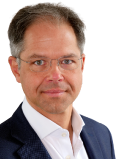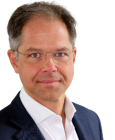Relationships
Love as Medicine
Personal Perspective: Bridging the gap between what we know and feel.
Posted January 14, 2023 Reviewed by Vanessa Lancaster
Key points
- In medicine, love is a daunting word.
- Patient-centered care comes alive when we walk alongside patients on a shared healing journey.
- A touchpoint to offer love as medicine includes reconnecting with our deepest values and forgiving our fallibilities.
.jpg?itok=_T-Huxn0)
How would you define love? Is it that leap of excitement in your stomach when you see someone you care deeply about, or the cosmic oneness you feel when making love? Or is it that timeless tug on your heart when your children place their entire trust in you? Perhaps it’s the familiar bond you experience with your parents, friends, or siblings or the transcendent state you can sometimes access in deep meditation.
It’s likely to be all these things and more. Fundamentally, true love is our most natural state of being. As the mystics have told us for years, only love remains when everything else is stripped away.
When your child is sick, instinct comes to the fore. It’s unnecessary to consult a doctor to know they need to feel safe, warm, protected, and loved. You probably tuck them into bed along with some soothing words and whatever will help them feel better. It’s the extension of our love and care that activates their own healing capacity.
As adults, we tend to ignore or suppress this need for connection and care, driven instead by our responsibilities. The theory is that pushing our emotional needs aside makes us more logical, productive, and mature even. But is that really true? What if we have thrown the baby out with the bathwater and also learned to ignore what we already know deep in our hearts – that expressing loving care for ourselves and others is the most fundamental healing power available to us all?
As a doctor, I’ve always found it strange that love is acceptable and even welcome in virtually every field except science and medicine. A search of scientific literature on love as a healing force yields just a handful of results. We’re so squeamish about the L word! Yet we’ve already acknowledged that love has many flavours, and perhaps some of its qualities might still be unknown to us.
It’s worth remembering that only a few hundred years ago, scientists were baffled by the patterns within iron filings which were generated by a magnet. Scientific curiosity eventually led to the discovery of a magnetic field. Perhaps it’s time to apply that same curiosity to this natural state of pure love and how it impacts healing outcomes.
Throughout my years in medicine, I have learned to accept a professional "sense of self" that is profoundly insufficient to support an effective healing process. Medical training teaches that scientific rigour is the only acceptable route to furthering our understanding and our knowledge in the field. I must admit that the scientist and teacher within me get excited by that thought, and the entrepreneur is delighted by the potential business opportunities it presents in the shape of pills and devices designed to achieve defined health outcomes. But what if the health outcomes we define and the measures we apply are too superficial?
Superficial because scientific rigour only accepts stark evidence as truth and does not allow us to ponder the unknown for anything other than a research hypothesis. Superficial because healthcare professionals work in an overburdened healthcare system that is driven by emergencies with insufficient time to step back and reflect deeply. Superficial because showing any vulnerability in front of colleagues or patients feels dangerous and ‘unprofessional.’
If we were to be truly scientific and ponder the unknown long enough to study love as a generative field that connects us all, perhaps we would discover its healing properties. How could that change our definition of health and health outcomes? That is a change of paradigm I would love to see.
When we take the time necessary to love ourselves enough to nurture and protect our own vitality and then show up without preconceptions, curious to learn from the people who have placed their trust in us, a profound shift often happens. This is where you cross the bridge between what you know and what you feel. By opening our minds and hearts, we walk alongside our patients on a shared healing journey, setting the tone for a genuine therapeutic alliance. In this dimension, patient-centered care comes alive as an experience rather than just a slogan above the hospital doors.
How can we prepare ourselves well enough to offer love as medicine?
- Reconnect with our deepest values. Very few people would pursue or sustain a medical career with all its sacrifices without a profound motivation to care for others. Remembering this initial drive and recalling stories that cemented your commitment will help you reconnect with your purpose, bringing more clarity and energy to your everyday experience.
- Turn on the light. Be prepared to be uncomfortable. Often our shadow selves lurk in the background, silently sabotaging our efforts. Integration becomes possible when you can invite them all into the light and listen to their perspectives with compassion.
- Forgive ourselves for being fallible. With death, discredit, and prosecution as potential outcomes, it’s no wonder that medical professionals might fear making errors and try to develop a shield of infallibility. Mistakes, however, are inevitable, and through forgiveness, we allow ourselves to be human, gaining access to deeper levels of healing and personal sovereignty.
- Give ourselves permission to love. Love is not just a feeling; it’s our most ordinary natural state. Permitting yourself to love means relaxing in that state as often as possible. By bringing focus to your heart and opening up to curiosity, you will be able to effortlessly attune with others. In turn, they will feel seen and cared for. A field of resonance will be created between you that will deepen mutual trust and increase the potential for health to be restored.


